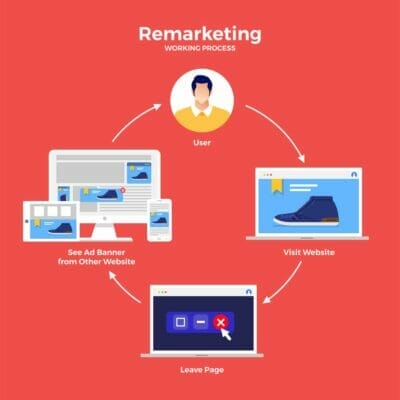If you want to gain more organic traffic for your urology practice by improving your website ranking on search engines, then SEO for urologists is the marketing strategy you need. Investing in SEO will give you organic and long-term results that will help you reach your target audience. You will gain a competitive advantage over your local competitors, increased brand visibility, and overall more new patients for your urology practice.
Table of Contents
ToggleWhat is SEO?
More organic traffic from people looking for urologists = more patients = more revenue. Search engine optimization or SEO is about fulfilling your target user’s search needs by creating relevant and high-quality content, whilst providing the best possible experience for the user. It’s essential to understand that SEO is a long-term process of continuous optimization through on-page SEO, off-page SEO, and technical SEO strategies.
- On-page SEO works by optimizing your web pages to rank higher on search engines.
- Off-page SEO is about any effort or activity done from the outside for your website to help improve ranking.
- Technical SEO is the process of ensuring the technical aspects of search engines are met to support organic ranking.
1. How does SEO work?
The main goal of search engines is to make users or searchers happy with the results they find, and to achieve this search engines work to find the most relevant pages to show up at the top of search results. To help your urology website show up at the top of search result pages, consider the following when creating relevant and quality content.
- Crawling: Search engines use “bots” or “web crawlers” that look for new and updated pages that are discoverable through links.
- Indexing: After the crawling stage, search engines like Google analyze each page and its content. This is then stored in a huge database of web pages.
- Ranking: This is the third stage after crawling and indexing. Search engines will use complex algorithms to rank web pages in the SERP based on the quality of content, relevance, and user experience.
2. E-E-A-T Framework
The E-E-A-T framework is something you should consider when creating content on your urology website. This is because Google pays a lot of attention to these E-E-A-T signals that help determine your website’s relevance and authority on search engines. A high E-E-A-T can improve user trust, which in return can lead to more conversions on your urology site.
- Experience: Demonstrate your first-hand experience with the subject matter when you write your content. This helps prove that suggestions are tried and tested and that insights are authentic.
- Expertise: This signals that you are an expert on the topic. Highlight your knowledge, qualifications, and credentials to further support your expertise.
- Authoritativeness: Refers to your overall reputation in your niche or industry, especially among experts so when others use your urology site pages as sources, it signals your website’s credibility and authority
- refers to your overall reputation in your industry. Especially among experts and influencers in your niche.
- Trustworthiness: This is the most important part of E-E-A-T. Make sure your content is accurate, cite trustworthy sources, and ensure the content is credible and up-to-date.
3. Why SEO for Urologists?
Search engine users conduct billions of searches for information, products, and services, hence why search engines are usually one of the biggest traffic sources for websites. To benefit from this, you need to appear at the top of search engine results pages for your target keywords because the higher you rank, the more potential patients will see and visit your urology page.
Keep in mind that ranking No.1 in organic results is 10x more likely to receive a click than a page ranking in position No. 10, hence why you should invest in search engine optimization for your urology website to improve your ranking position. Better ranking means more traffic, and this as a result will bring you more new patients and online visibility.




Does SEO sound like the perfect marketing strategy for your urology practice?
4. Local SEO
Adding local SEO strategies to your urology website will help you appear at the top of local search results pages for searches like “urologist near me Irvine“. If your urology practice operates in one or more locations, targeting local SEO for these geographic areas will allow users who are actively searching for urologists near them to find you at the top of local search engine results.

5. On-Page SEO strategies
As we mentioned earlier, on-page SEO is the process of optimizing your urology website with on-page SEO strategies to rank higher on search engines.
5.1 URL slugs, Meta Descriptions, and Title tags
URL Slugs serve as unique identifiers, that are usually found at the last part of the URL address. You want to include your target or primary keyword for specific pages, and you will want to keep your URL slugs user-friendly.
- https://uciurology.com/general-urology/
Our first URL slug example gives the user a clear indication that the content of the web page is about “general-urology”. This is a good example of a simple URL slug that focuses on offering general information to the user or website visitor regarding a specific topic.
- https://uciurology.com/male-urology/male-infertility/
- https://uciurology.com/female-urology/pelvic-reconstruction/
These next two examples use longer and more detailed URL slugs. Both use target keywords to provide a concise description of what the page is about and it helps a user or website visitor distinguish the type of content the page has, and if it will meet their search intent.
Optimize URL slugs
- Make it user-friendly and avoid keyword stuffing
- Make it concise and easy to read (try to use less than 5 words in your URL slug)
- Use hyphens, not underscores
- Include your primary or target keyword
- Don’t use URL slugs that already belong to other pages
- Avoid weird or special characters
- Use lowercase characters
- Avoid using numbers that may change in the future, such as the publishing year
Meta Descriptions are usually HTML tags that inform and interest a user with a short summary of what a specific page is about. An effective meta description tag will convince users to click on a website’s link on SERPs and increase the click-through rate, so you want to keep it relatively short, unique but descriptive and relevant.

Optimize Meta Description
- Keep meta descriptions between 155 to 160 characters
- Include the primary target keyword
- Satisfy the user’s search query (Understand the search intent for an effective meta description)
Title Tag is an HTML code tag that allows you to give your web page a title. These will typically be seen in the browser and search results. A well-optimized title tag should meet the search intent of a user, make it exciting to read for the user, and should be helpful with keyword ranking.


Optimize Title Tag
- Accurately describes your page
- Keep title tag length between 50 to 60 characters
- Avoid keyword stuffing
- Target one primary keyword
- Make your title tags unique on your website and on the SERP
- Make sure the title element is present in your page’s HTML
5.2 Internal and External links
- Internal Links are hyperlinks or relevant pages on your urology website. These should provide additional relevant and useful information.
- External Links (also known as outbound links) are hyperlinks or relevant pages found outside of your urology site that take the reader to a different domain when they click on it. External links can also help search engines have a better understanding of your page’s topic, and boost its ranking and reputation when using authoritative and relevant sources.
Best Practices for Internal Links:
- Include at least 3 to 5 internal links per page.
- Use plenty of internal links on your urology website.
- Link quality, relevant pages with high authority to help improve your ranking and the user’s experience.
- Avoid phrases like “click here”. Replace them with anchor texts.
Best Practices for External Links:
- Add value to your page and for your readers by linking to relevant sources.
- Use credible and professional sources.
- Don’t link your competitor’s website.
- Use keyword anchor texts.
- Make sure that your external links open to a new tab.
5.3 Alt tags
Alt tags, also known as alternative text, alt attributes, and alt descriptions have the main purpose of describing the appearance of an image being used on a page. Alt tags help screen reading tools describe the images to visually impaired readers. They also allow search engines to crawl and rank a website.
Ensure that your alt tags accurately describe the images or infographics found on your page. This way both bots and users can understand the content of your site.
Best practices for alt tags:
- Alt descriptions should be relevant to the topic discussed on the page
- Avoid copying the image caption
- Use up to 125 characters or less.
- Keep it short
- Avoid keyword stuffing
- Include primary keywords
- Don’t include “image of” or “picture of”
Update Old Blog Posts
Part of on-page SEO optimization involves updating old blog posts on your urology website. Updating these will help you rank higher on search engine results pages, and support your on-page SEO efforts.
How to update old blog posts?
- Check for outdated features or trends that are not applicable in the present time and remove them from your posts.
- Check both internal and external links on your blog posts. Make sure these don’t redirect users to dead links or broken links due to a change of domain.
- Promote your blog post using other formats, like infographics.
- Share your blog posts on social media platforms.
Don’t have the time for on-page SEO optimization for your website? We make it easy for our clients!
5.4 Keyword Research
Your SEO for urologists campaign won’t be as successful if you don’t implement keywords in your urology website, and this is why keyword research is an important step for on-page SEO. Keyword research will help you better understand which keywords your target audience or potential patients mainly use to search for oncologists or oncology services.
When choosing your keywords, considering the following factors will help you target high-intent keywords to make your SEO efforts more effective.
- Search intent
- Keyword difficulty
- Monthly search volume
- Relevance to your business
Understand Search Intent
One of the factors mentioned for effective keyword research is search intent. It’s important to understand the type of search intent a user might have because it can impact your ability to rank in search results.
- Informational intent is when a user intends to find more information about something. Searches with informational intent could be phrased questions with terms like “how”, “why”, “tips” and “solution”.
- Navigational intent is when a user actively looks for a specific page. This type of searcher usually indicates that they already know what they are searching for. An example could be “urologist for ED”.
- Commercial intent is when a search includes keywords a user has previously used to research before making a purchase. This can also look like a search for a treatment provided by your urology practice with feedback from previous patients, for instance, “UTI treatment near me x review” or “UTI doctor near me x review”.
- Transactional intent is when a user already knows what they want with the intent to make a purchase or book an appointment, like “bladder installation treatment in Irvine”.
5.5 Keyword Research Tools
Browser Extensions
You will want to use keyword research tools to help save time when researching, and one of the tactics we recommend using is browser extensions.
Keywords Everywhere is a browser extension that offers a “freemium” plan and doesn’t require you to log in to any SEO tools online. With this browser extension, you can get keyword data on volume searches, CPC (Cost per click), relevant keywords, and long-tail keywords.

Whatsmyserp is another browser extension you can use for free, for your keyword research. You will need to create an account with whatsmyserp to have access to keyword analytics, CPC, and a collection of related search terms. In addition, it also offers a free SERP checker tool.

Google Autocomplete Predictions
This is a feature within Google’s search engine that uses an automated system to generate predictions. These are usually relevant queries that come from real and trending searches based on your location and the language of the query.

Google Related Searches
These are search results at the bottom of the results page. It uses Google’s algorithm to generate terms related to your search. These can be very useful in finding keywords suitable for your content, and they will help you get a better understanding of what the search intent is from your target audience.

Google Keyword Planner
Another free tool you can use for keyword research is Google’s keyword planner. It can help you discover new keywords that are relevant to your primary or target keywords. For example, we entered “urologist near me” and as you can see from the example below, it provides data on their average monthly searches, each keyword’s competition level, and their top-of-page bids. Tools and data like these help you find the right high-intent keywords to support your SEO efforts.

6. Off-page SEO strategies
6.1 Guest posting
Guest posting (also known as guest blogging) is a very effective tactic for link-building. Link-building is the process of other websites linking to pages on your urology site. It’s an important element in guest posting to help boost the authority of your urology page on Google, which in return can help drive more traffic to your site, and improve your ranking. Link-building also contributes to getting high-quality backlinks and signaling search engines that you’re an industry expert.
You can search for guest posting opportunities on search engines by entering keywords like “write for us+urology”. Search results will then provide you with websites accepting guest posts for urology topics, along with guidelines you will need to follow when guest posting.
Tips for writing guest posts:
- Follow guest post guidelines, requirements, and terms and conditions.
- Follow with their style of writing.
- Include internal links from their website.
- Proofread for grammar and spelling mistakes before publishing.
- Work on your author’s bio. You can mention things about yourself, your expertise, and even social channels where they can reach you.
6.2 Content Marketing
Content Marketing is part of off-page SEO and one of the key strategies you need to implement in your SEO efforts to help nurture and convert leads. For your content marketing to be effective, you will need to write content that will be enjoyable to read for your target audience. It should also provide a solution for the reader, such as the benefits of ureteroscopy.
Content marketing can also help attract and retain your target audience, to drive profitable customer action. You will also want to use different channels to distribute your content which can help boost off-page signals:
- Podcasts
- Newsletter
- Email Marketing
- Ebooks
- Press Releases
- Social Media
- Video Marketing
- Influencer Marketing
- Content Syndication
- Forums
Content Marketing Funnel
You can also consider these 3 stages of the content marketing funnel to further help with your content marketing optimization.
- Awareness – Content is focused on educating your target audience.
- Evaluation – Potential clients will decide if they need your product or service.
- Conversion – Reasons to buy your product or service.
Overall, a content marketing funnel is a tool designed to help cater to your target audience with educational and informative data. These will help your potential patients decide which of your urology services and treatments will help meet their target wants and needs.
Not sure what content marketing channels to use for your specific industry?
6.3 Social Media Marketing
To support your SEO efforts, social media marketing is an effective strategy to improve your urology website ranking. Using social media marketing involves engaging with your target audience on social media platforms, and in return, you can gain many benefits such as an increase in organic clicks, established authority, and improved local ranking. It can also drive on-site engagement, gather insights from social media metrics, and generate backlinks.
Best practices for social media marketing:
- Identify your target goals.
- Use a content calendar tool. This helps you plan, stay organized, and on track with postings per month.
- Create visual and engaging posts.
- Publish authentic and relevant content that creates a personal or emotional response from your target audience.
- Share customer feedback.
- Share on social media groups like Facebook groups and LinkedIn groups that are relevant to your niche or industry.
6.4 Podcast Marketing
Podcast marketing is a newer SEO strategy that involves promoting and selling a product or service through audio content. This type of marketing can help your urology practice reach newer audiences, and the advantage of podcasts is that you can use this platform to tell your brand’s story, vision, and mission, you can build authority, and encourage word-of-mouth marketing. Keep in mind that although podcast marketing can be very effective as one of your off-page SEO strategies, it can require a lot of time for preparation.
Tips for podcast marketing:
- Be authentic and add a personal touch
- Engage with your community
- Add value to your target audience
- Publish your podcast on YouTube
- Repurpose your podcast content and transcribe your audio podcast
- When writing your episode scripts, include CTAs (e.g. share this with your friends on social media)
- Build your network and collaborate with other podcasters
6.5 Video Marketing
Incorporating video marketing as part of your SEO for urologists campaign is a great way to reach more new potential patients. Around 100 million internet users watch videos online every day, which is one reason businesses are now incorporating videos to promote their products and services.
With this marketing strategy, you will want to consider important factors when creating videos, such as the 3 stages of production (pre-production, production shoots, and post-production), and if you can invest the time in creating your video marketing content. This is why you will need to do prior research and planning before posting your videos.
You also want to consider what your competitors are doing, what hashtags and keywords to include, the video length of your videos, current trends in promotional videos, and more.
Best practices for video marketing:
- Set video marketing goals
- Decide which platforms to use
- Plan content production
- Schedule and promote videos
- Understand and analyze KPI metrics
Best tips for video marketing:
- Grab the attention of your target audience within the first 3 seconds
- Make your videos feel personal
- Have target keywords in your video, video captions, and video title
- Consider both vertical and horizontal format videos
- Include a clear CTA (Call to Action) in all videos
- Add video testimonials
- Keep it short but engaging and interesting
- Make sure the video can provide the solution to a problem (e.g. maximum relief with kidney stones removal)
6.6 Online forums
Consider participating in online forums as part of your off-page optimization strategy for your urology website. This is because it can help boost your off-page SEO, it can help your urology website more popular online, and can help improve your ranking on search engine results pages. When you participate in online forums or online discussions, you can establish your expertise in the urology industry and support your answers with relevant links from your website, which in return will help build your authority, gain more backlinks, website traffic, and more new potential patients.
Consider the following factors when joining online forums like Reddit, Quora, LinkedIn and Facebook groups:
- Provide accurate answers
- Support your answers with relevant links
- Don’t add links in every single answer you provide
- Don’t spam the comment section only to get more links (It can make you lose credibility and ruin your reputation)
- Follow the platform’s policies
Does off-page SEO sound like too much work to manage?
7. Technical SEO strategies
Now that you understand how on-page and off-page SEO works and which strategies will help your SEO efforts, it’s important not to neglect technical SEO. Earlier in this article we mentioned that technical SEO is the process of ensuring that the technical aspects of search engines are met to support your organic ranking. You want to work on your technical SEO to avoid technical issues on your urology website that may cause your site to not rank on search engines. First and foremost, ensure that your website’s security.
7.1 Website security
Ensure that your website is secure to earn the trust of your potential patients. Not optimizing your website security risks personal information from your patients getting stolen by hackers, and will most likely signal search engines to rank your site lower on SERP. This as a result will most likely drive away potential new clients due to the lack of trustworthiness and credibility from not having website security.
One way to secure your urology website is by using HTTPS, which helps protect sensitive user information from being compromised like passwords and credit card details. Another key element to consider when securing your website is having a “secure encrypted connection”.
Other factors to consider for securing your site are the following:
- Choose a reliable hosting provider
- Schedule regular website backups
- Update your website to the latest version
- Install an SSL certificate to authenticate the identity of your site
Single Website Version
For your urology website, you want to avoid multiple versions accessible by a user to avoid duplicate content issues.
- https://uciurology.com
- https://www.uciurology.com
Having more than one accessible version of your urology website can have many negative effects, like reducing the effectiveness of your backlink profile and negatively affecting the performance of your website on Google, so you want to make sure that there is only one single website version available and accessible.
7.2 Page speed
With the continuous technological advances in the digital landscape, you want your website to be accessible and able to load fast enough on both mobile and desktop devices when a user clicks on your page. This is because page speed is one of the factors that could affect your ranking.
You can improve your page speed by compressing the images on the page, minimizing the use of javascript files to improve the load time of the page, and using CDN or a content distribution network for requested files to require less distance travel by using the nearest server.
7.3 Mobile Friendly
You also want to ensure that your urology website is mobile-friendly. Google uses mobile-first indexing to look at the mobile version of your urology website to index, rank content, and see how compatible it is with mobile devices. To check if your urology website is mobile-friendly, you can use tools like Mobile-Friendly Test on Google Search Console.
7.4 Fixing duplicate content
As we mentioned earlier, you want to avoid duplicate content issues by having more than one single website version available. This is also applicable for your urology website and its contents because you want to prevent its negative effects, for instance, backlink dilution and wasted crawling budget. If you don’t find and fix duplicate content on your urology website, it can also make it hard for bots or search engine crawlers to decide which page should rank high, affecting your rank on SERP.
To find and fix duplicate content issues on your site, use tools like Semrush, which can give you real-time performance reports to identify your rank on search engines like Google, Yahoo, Bing, and YouTube.
7.5 Fixing broken links
Another technical aspect that you may need to find and fix is potential broken links on your urology website. You will want to remove broken links because they can affect the user experience, and encourage users to leave your urology website without performing an action of conversion like “booking an appointment”. Broken links happen when a user can’t access the links on your post, which can be due to a change in the URL of a page on your site, the removal of a page on your site, or you have forgotten to redirect the old URLs to their new domains.
To find and fix broken links on your oncology website, you can use tools like Google Search Console or Ahrefs’ Broken Link Checker. These can also help track your website’s ranking and performance on Google’s search results page.
7.6 Keyword Cannibalization
Just like how you want to avoid duplicate issues, you also want to avoid cannibalization. This happens when too many pages on your urology site have identical or similar keywords used consistently throughout the content on your site. You also want to avoid keyword cannibalization because it can affect your rank on SERP since web crawlers will have a hard time prioritizing which page should rank higher, and it can cause potential website traffic loss.
How to fix keyword cannibalization:
- Organize all the URLs and target keywords from your urology website (e.g. using spreadsheets)
- Reduce the number of times the keyword is used or remove if it possible.
- Improve the content of your pages with better quality.
- Check if any pages cannibalize each other and why.
Need help with the technical aspects of your SEO campaign?
Get On A Call With Our Experts!
8. Conclusion
To organically rank high on SERP, and gain more potential new patients for your urology practice, SEO for urologists is the campaign you want to implement for your business. Because more potential patients continue to rely on search engines like Google to search for urologists or for urology treatments and services near them, SEO can help your urology practice reach the right target audience and establish a stronger online presence by increasing your brand’s visibility.
Follow the SEO strategies discussed in this article to make your SEO efforts effective for your marketing campaign and to have a competitive advantage over your local competitors by ranking higher on Google’s SERP, which will bring you more new patients as a result.
In this article, we shared our insights from running over a thousand successful SEO campaigns at Yoyofumedia and discussed the best practices you can implement to manage your own successful SEO for urologists campaign. If you want faster results, read how Google Ads for Urologists can also help you. To learn more about our successful SEO case studies, visit Yoyofumedia’s page.
If you need further assistance with setting up or managing your campaign for SEO, schedule your free strategy session now and get started to experience your return on investment growing exponentially once your campaign gains traction, and organically gain more new clients for your urology practice!







